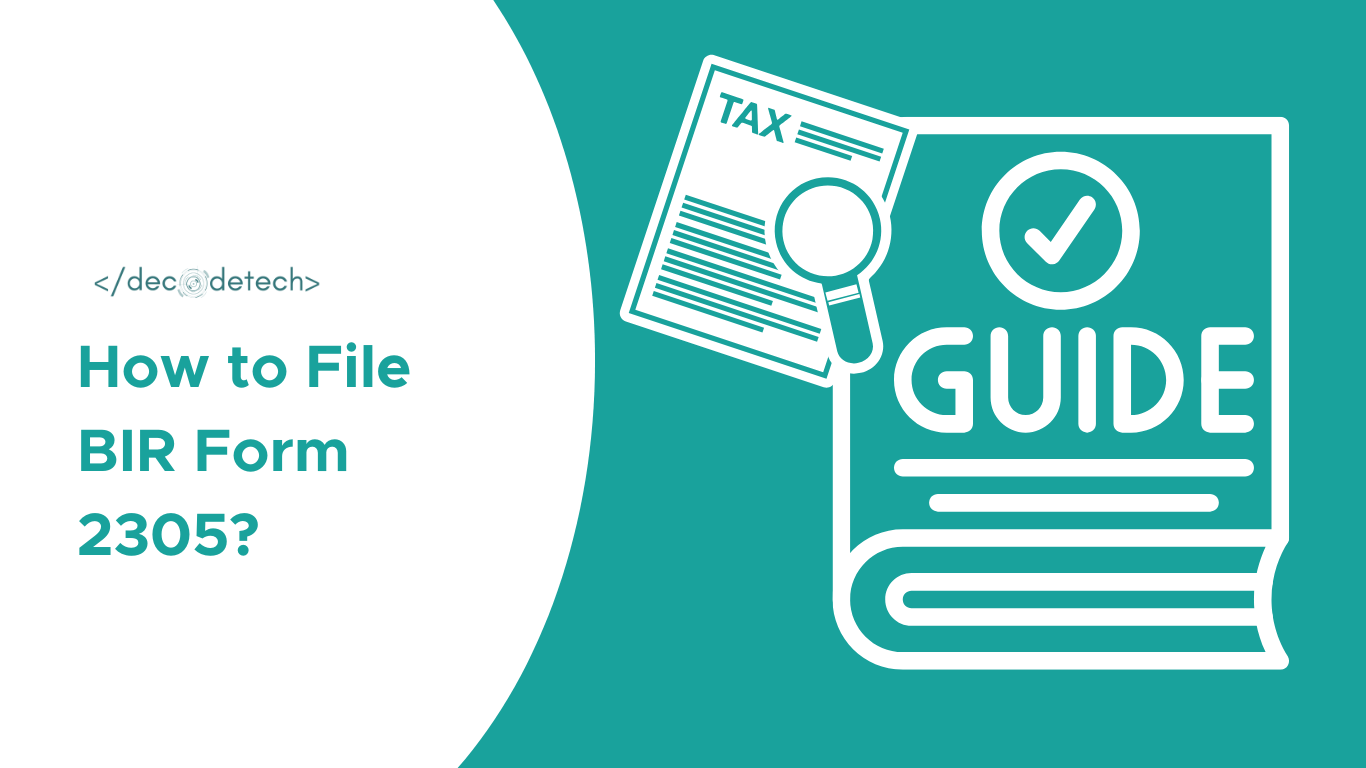Business Insights, HR and Payroll Tips and How-To
How to File BIR Form 2305: A Complete Tax Compliance Guide for the Philippines
06 Nov

Navigating the tax landscape in the Philippines can be challenging for both employees and employers. One essential document in this context is BIR Form 2305. In this article, we’ll explore what BIR Form 2305 is, the requirements for filing it, the filing process, the implications of not filing, and how a payroll system can simplify the entire process.
What is BIR Form 2305?
BIR Form 2305, or the “Certificate of Update of Exemption and the Employer’s and Employee’s Information,” is a vital tax form used primarily by employees in the Philippines. Its main purpose is to inform the Bureau of Internal Revenue (BIR) about an employee’s tax status, particularly regarding tax exemptions and deductions.
This form is crucial for employees who experience changes in personal circumstances—such as marriage, the birth of a child, or changes in dependent status—that may affect their withholding tax obligations. By updating this information through BIR Form 2305, employees can ensure that their tax withholding accurately reflects their current situation, preventing unexpected tax liabilities or overpayments.
What are the Requirements for Filing?
To file BIR Form 2305, you’ll need to gather specific information and documents:
- Personal Information: Your full name, Tax Identification Number (TIN), address, and contact details.
- Employer Details: The name and TIN of your employer, linking your tax information to the correct employer.
- Dependent Information: Details of any dependents that qualify for tax exemptions, including their names and birth dates.
- Previous Certificate: A copy of any prior BIR Form 2305 if this is an update, to maintain accurate records.
- Supporting Documents: Documentation that supports your claims for exemption, such as marriage certificates or birth certificates for dependents.
- Signature: Your signature to validate the information provided.
How to File BIR 2305
Filing BIR Form 2305 involves a few straightforward steps:
- Obtain the Form: Download BIR Form 2305 from the official BIR website or request a physical copy from your HR department.
- Complete the Form: Fill in all required fields with accurate information. Take your time to review for errors, as mistakes can complicate tax processing.
- Submit to Your Employer: After completing the form, submit it to your employer, who will process the information and forward it to the BIR.
- Keep a Copy: Retain a copy of the submitted form for your records. This is essential for future reference and peace of mind.
- Follow Up: Check in with your employer to confirm that the form has been filed and processed correctly.
What Happens If I Don’t File BIR Form 2305?
Neglecting to file BIR Form 2305 can lead to several complications:
- Incorrect Tax Withholding: If you don’t update your exemptions, your employer may continue withholding taxes based on outdated information, which could result in overpayment or underpayment.
- Penalties and Fines: The BIR imposes penalties for late or non-filing, which can add financial strain when reconciling your taxes.
- Audits and Investigations: Inconsistent tax filings may trigger audits, leading to a stressful and time-consuming process.
- Loss of Benefits: Failing to file can impact your eligibility for certain tax benefits and credits, affecting your overall financial health.
To avoid these pitfalls, it’s crucial to prioritize timely and accurate filing of BIR Form 2305.
Role of Payroll Systems in BIR Form 2305 Compliance
The payroll system is integral to the compliance and reporting requirements outlined in BIR Form 2305, a key document in the Philippines that facilitates the registration of employees and updates to their tax information. This form is essential for employers, as it ensures that employee tax statuses are correctly reflected, particularly regarding withholding tax exemptions and adjustments in compensation.
A well-structured payroll system allows employers to maintain accurate and up-to-date records of employee classifications, tax statuses, and applicable deductions. By capturing all necessary data—from basic salary and bonuses to various allowances and contributions—an efficient payroll system minimizes the risk of errors that could lead to discrepancies in tax filings. Furthermore, it enables timely updates to Form 2305 whenever there are changes in an employee’s status, such as promotions, new hires, or terminations.
This integration is not just about compliance; it significantly enhances the overall efficiency of payroll operations. Automation within the payroll system reduces manual data entry, saving time and decreasing the likelihood of mistakes. Additionally, with real-time access to payroll data, employers can make informed decisions regarding compensation packages and tax planning, ensuring they remain competitive while meeting their obligations.
Moreover, a robust payroll system can facilitate seamless communication between employers and employees regarding tax-related matters. By providing employees with clear information about their tax withholdings and exemptions, it fosters transparency and trust. Ultimately, a streamlined payroll process that effectively incorporates BIR Form 2305 supports both the employer’s financial health and the employees’ ability to fulfill their tax obligations accurately, thereby contributing to a more efficient and compliant workforce.
Recent Posts
- Organized Recruitment Process: How Structured Hiring Improves Outcomes February 7, 2026
- Unlocking Potential in 2026: How AI Assistants Boost Business Efficiency January 29, 2026
- Switching Payroll Providers in Manufacturing: What PH Businesses Should Evaluate 2026 January 27, 2026
- Applicant Tracking System Explained: How Philippine Businesses Improve Hiring in 2026 January 23, 2026
- AI Chatbot and Callbot Made Simple: Their Growing Role in Business Operations in 2026 January 22, 2026